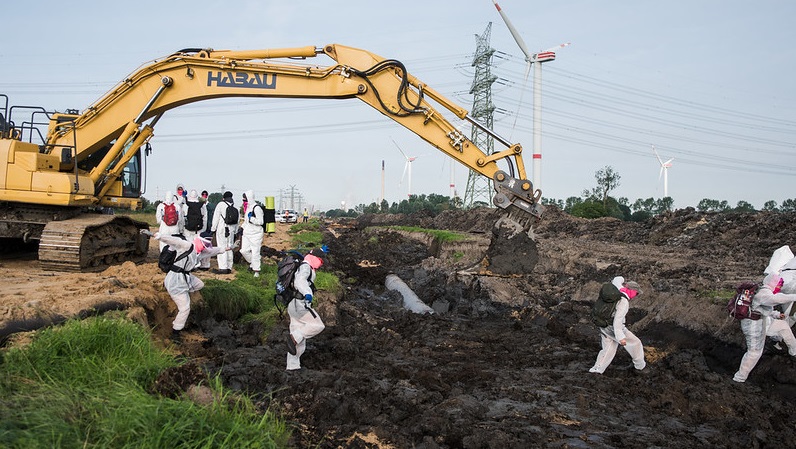While the US debates new gas export terminals, across the ocean in Germany an import pipeline remains unused after suspected sabotage from activists claiming to act in solidarity with Americans.
In November 2023, pressure tests revealed several tiny holes in the 55 km pipeline, designed to bring gas from a new floating import terminal in Brunsbüttel to the gas distribution network in northern Germany.
The pipeline was supposed to start operating by the end of last year but it remains out of action. The company building the pipeline says it will open it next month.
While they did not claim responsibility for the holes, radical climate activists from Ende Gelände, meaning ‘here and no further’, have demonstrated against the pipeline.
Zimbabwe looks to China to secure a place in the EV battery supply chain
They posted a thread on X, saying that “those responsible are unknown” but “anyone who builds an LNG [gas] terminal, a highway or other fossil fuel infrastructure should know: we will not leave you alone.”
“Where appeals fail,” they said, “we resort to blockades. Since we cannot block everything, sabotage against the destruction of our climate is legitimate”.
In their thread, they referred to climate activists setting fire to a cement factory in Berlin and to demonstrations against coal mining in Lusatia.
The group’s spokesperson Jule Fink told Climate Home News this week: “We are not going to stop protesting against public infrastructure, and we don’t plan to just let new LNG terminals be built”.
Solidarity with the US
She added that gas imports were “extremely destructive” and that “German hunger for gas” was driving the expansion of gas export terminals in the USA.
She said this was particularly an issue in the South of the USA. “We can see that this is an issue of climate injustice because places where marginalised communities live become sacrifice zones,” she added. Gas export terminals release air pollutants, damaging local residents’ health.
Cop29 host Azerbaijan launches green energy unit to sceptical response
The US had planned to build dozens of new terminals, particularly in the southern states of Louisiana and Texas, attracting anger from US and international climate activists.
But today, US President Joe Biden announced he would halt decisions on new gas exports. “This pause on new LNG approvals sees the climate crisis for what it is: the existential threat of our time,” he said.
Not necessary
Franziska Holz is a gas expert at the German Institute for Economic Research. She said that Germany does not need new gas import terminals.
When Russia invaded Ukraine in 2021, Germany was getting more than half of its gas imports from Russia. Since the invasion, its government has been scrambling to find different sources of gas fast, announcing plans to build 12 new gas import terminals.

A spate of LNG terminals are either proposed (orange) or under construction (red) (Photos: Global Energy Monitor)
“In the short term, it was understandable that the German government and traditional importers wanted to replace Russian natural gas with natural gas from other sources,” Holz said.
“But it was not necessary to build massive LNG import capacity in Germany. Rather, the pipeline capacities from Norway and the LNG import capacities in the Netherlands and Belgium would have been sufficient”, she added.
Germany aims to be greenhouse gas neutral by 2045 and the European Union aims to reach net zero by 2050. To meet this, analysts expect gas demand, which is already falling, to reduce rapidly.
